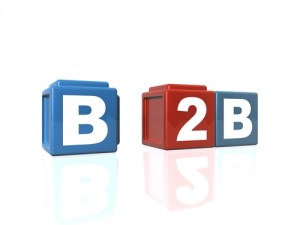Better B2B SEO Through Jargon
In many ways, business-to-business SEO can be trickier than consumer facing SEO. When you’re marketing to consumers, you’ll often be better-informed than they are after an hour or two of research. And in many cases, all you need is content that survives a cursory glance, not an in-depth reading. And as anyone who has written […]
In many ways, business-to-business SEO can be trickier than consumer facing SEO. When you’re marketing to consumers, you’ll often be better-informed than they are after an hour or two of research. And in many cases, all you need is content that survives a cursory glance, not an in-depth reading. And as anyone who has written consumer-facing copy knows, brevity is the soul of conversions.
Business-to-business SEO doesn’t play by those rules.

Your content needs to be flawless, or at least really strong, and you have to expect that you’re writing for an audience of experts.
There’s one shortcut that can make all of this easier: use jargon, and lots of it. Most copywriters advise against jargon, but it’s incredibly effective for B2B SEO copywriting:
- Jargon lets you target the searches laypeople won’t do.
- Jargon lets you identify yourself as an expert.
- If you learn insider lingo for the industry you’re marketing to, you can become an expert.
Dodging The Consumer Bullet
One of the biggest problems with B2B SEO is the “consumer-facing” trap. Pick any keyword that you could use to go after a five-, six-, or seven-figure sale, and there’s a good chance that the results you get from searching that term are mostly targeting a much smaller sale.
Take any term related to high-end IT spending: someone searching for “email backup,” “database software,” or “servers” could easily be scouting out a multi million-dollar purchase. But the search results all target a much lower price point.
That makes sense, to a point: on a click-by-click basis, for most broad terms, there’s more gross profit available from selling to consumers than selling to businesses. One reason for this is that consumers buy high gross-margin products with a minimal sales cycle: if you buy $50 worth of tax preparation software from Intuit, their marginal cost of goods sold is about $.00. But if you buy a million-dollar audit from KPMG, they might end up spending 90%+ of that on salaries, expenses, and overhead.
But the fastest way to target keywords is to target them by jargon. Instead of talking about email backups, talk about Sarbanes-Oxley; instead of talking about income taxes, talk about depreciation schedules; don’t mention databases when you can drill deep into the enterprise features that make those databases powerful.
Talking Like An Expert
The number one obstacle to making a B2B sale online is sounding like an amateur. Oddly enough, most of the good copy online is written by non-experts; it’s more economical to hire a good writer who can craft an optimized headline than to hire a good writer who knows their way around SEO and whatever corner of the industry you’re working in.
But in a B2B scenario, that math doesn’t work. You’re asking people to trust you for a big investment—for some people, every purchasing decision is to some extent risking their career.
You want to make that a good risk for them, and the only way to do it is to use the language they use. If you’re selling high-end databases, immerse yourself in the discussions they have. If you’re writing about corporate law or accounting, read the blogs BigLaw employees read or the sites Big Four accountants frequent. (Yes, in case you were wondering: there really is “An Online Tabloid for Modern Accounting & Finance Professionals.”)
Be The Expert
A funny thing happens to online marketers and copywriters who immerse themselves in a complicated market – after a long time of sounding like an expert, they’ll actually become experts. After a while, you can’t talk confidently about a topic without understanding it on a fairly deep level.
Fortunately, that’s exactly what you need for a strong B2B SEO campaign. B2B SEO is built on useful email newsletters, thorough whitepapers, and a staggering level of technical detail in on-site copy. The B2B sales process is extensive, and involves lots of in-person information sharing; if you can shift even a small fraction of that online, you’ve made your campaign far more scalable. (Replacing sales calls with pageviews is a massive, massive win.)
It’s daunting to look at a complex sales process and try to boil it down to a few landing pages that get the point across and rank well. But the good news for SEOs is that they’re on the right side of history: more and more decisions start online, and more and more research happens in front of a computer screen.
The B2B SEO process gives a savvy marketer numerous chances to capture and recapture their audience, and with the right dose of jargon a good copywriter can slip into character as an expert.
Stock image from Shutterstock, used under license.
Opinions expressed in this article are those of the guest author and not necessarily Search Engine Land. Staff authors are listed here.
Related stories
New on Search Engine Land